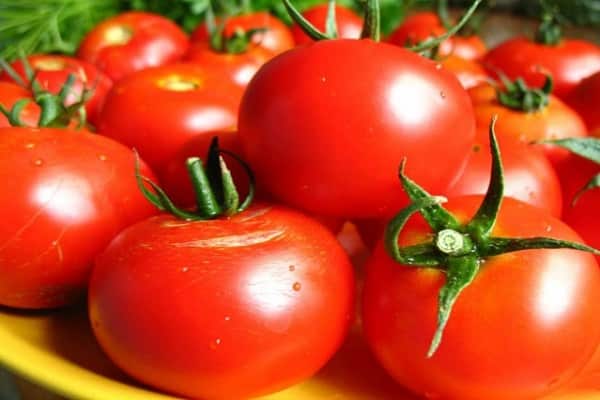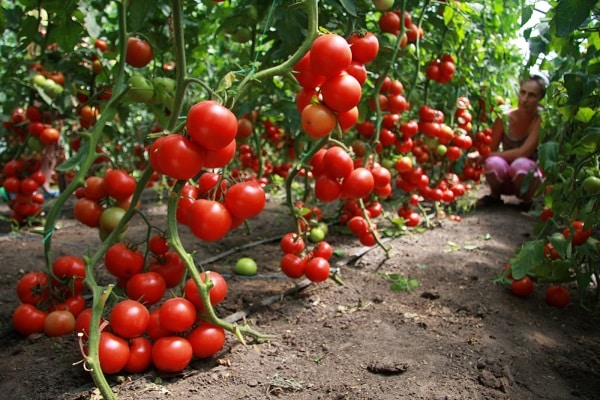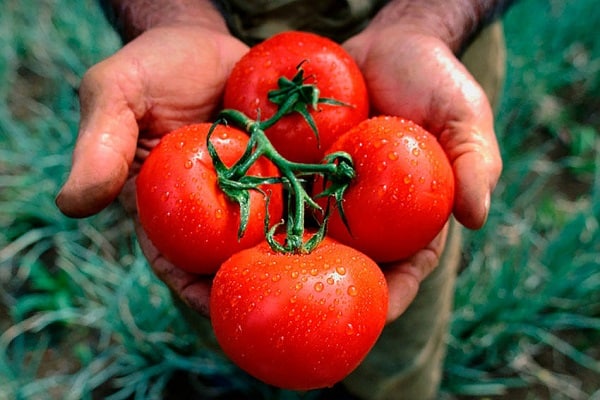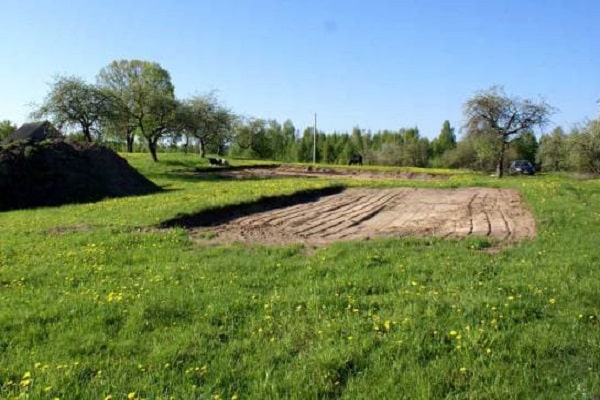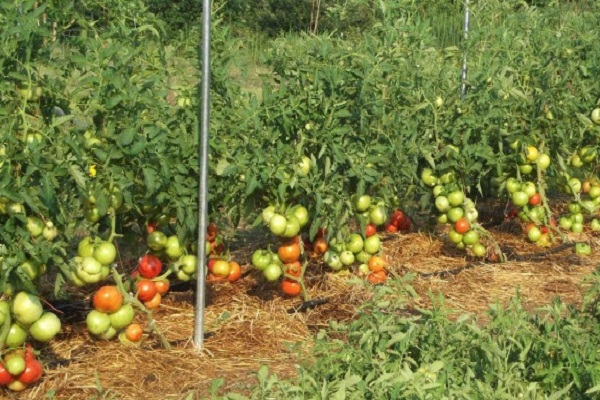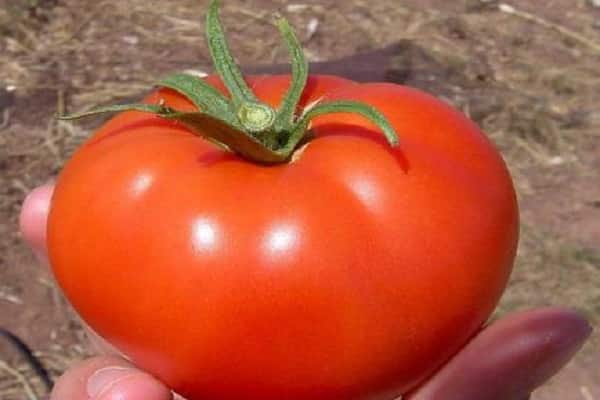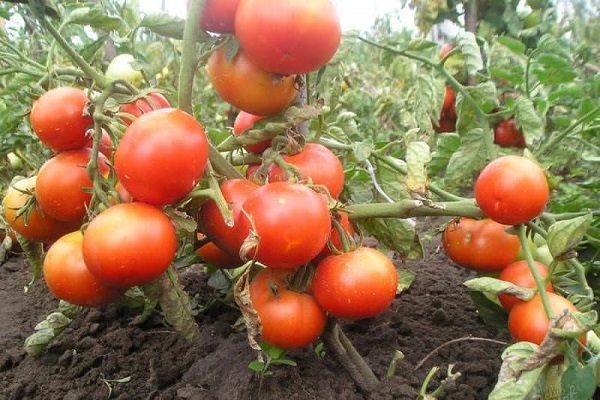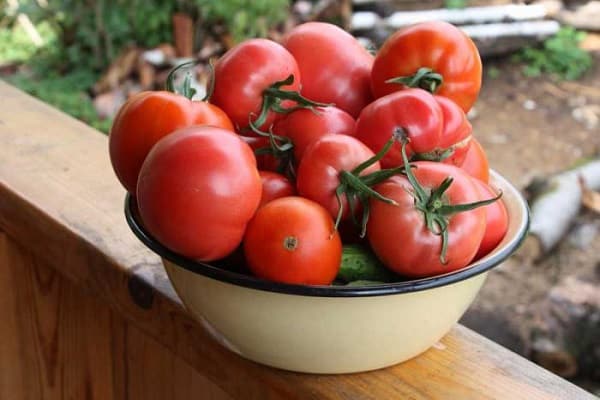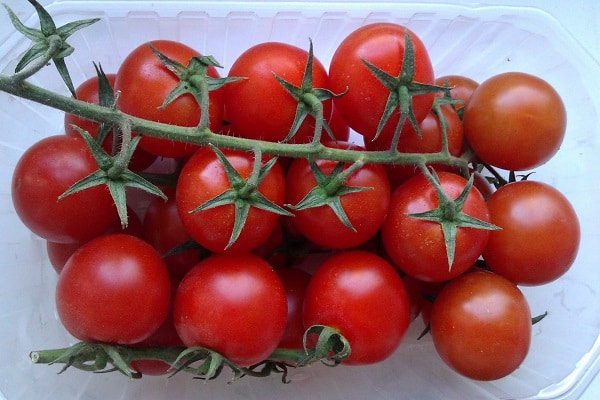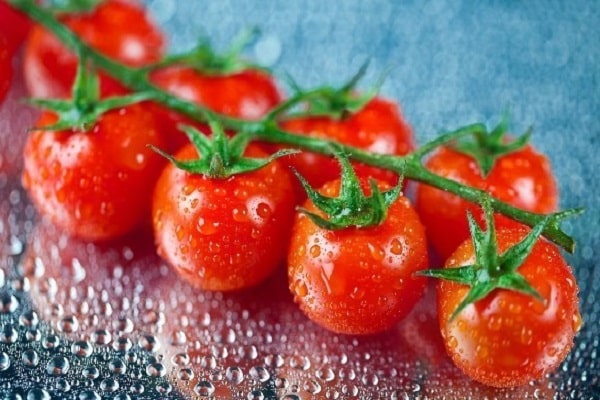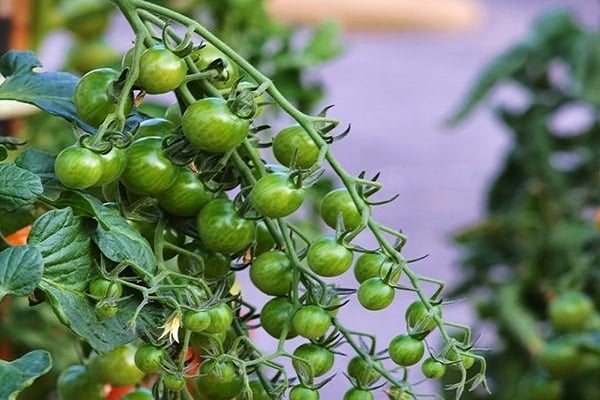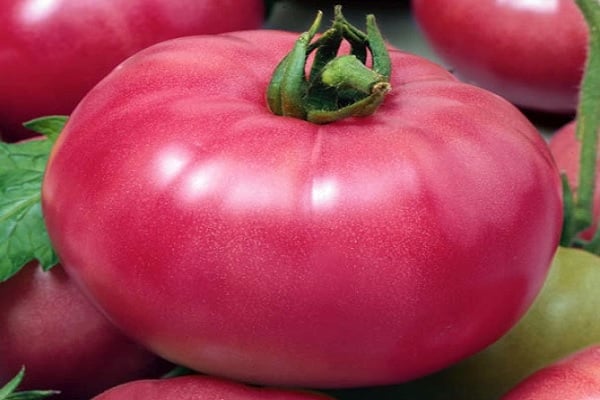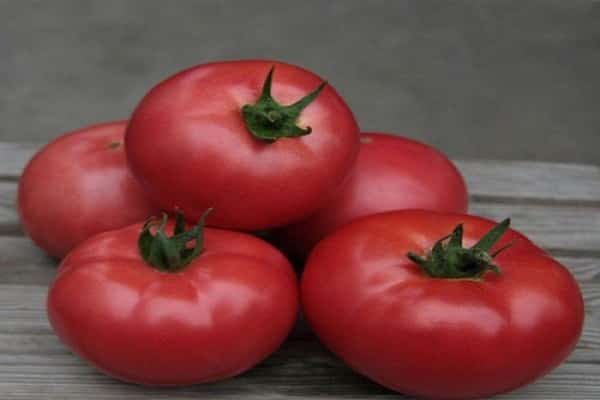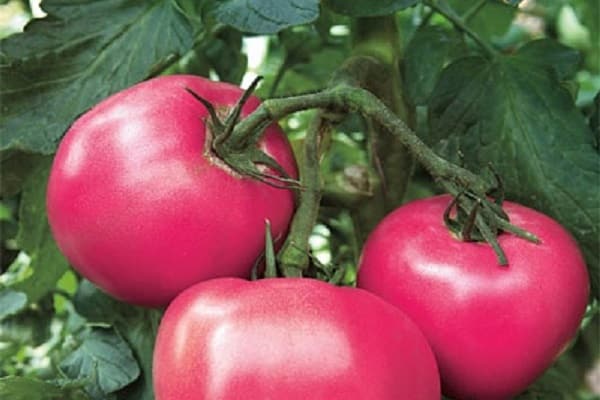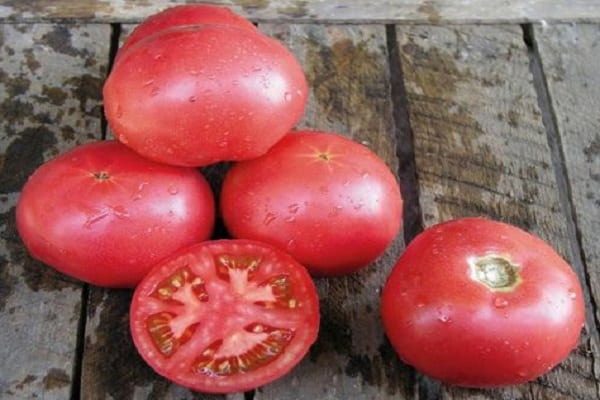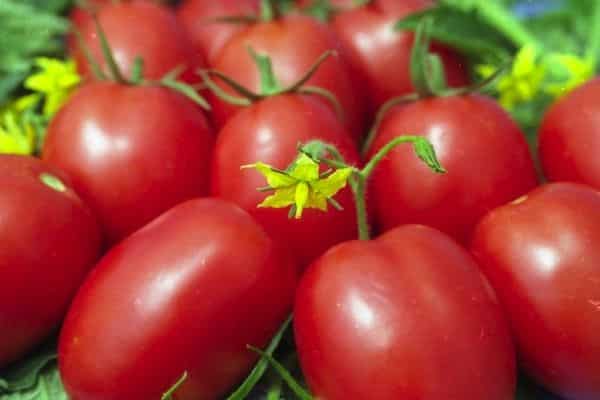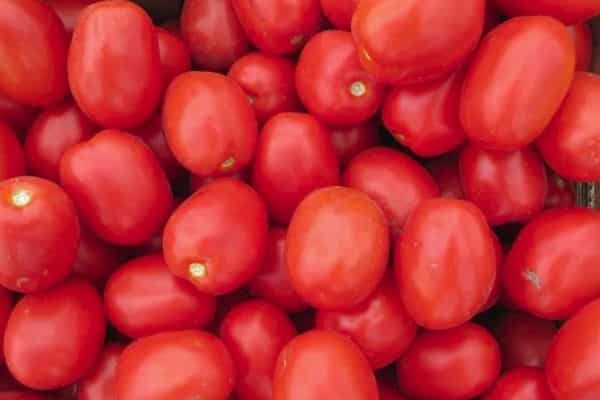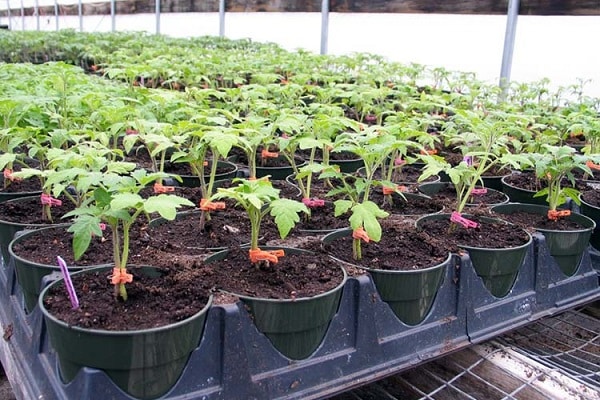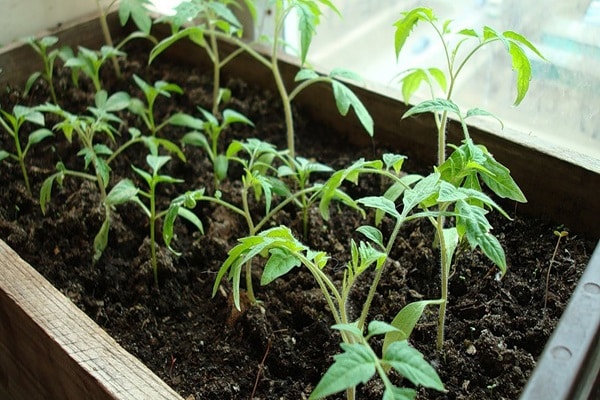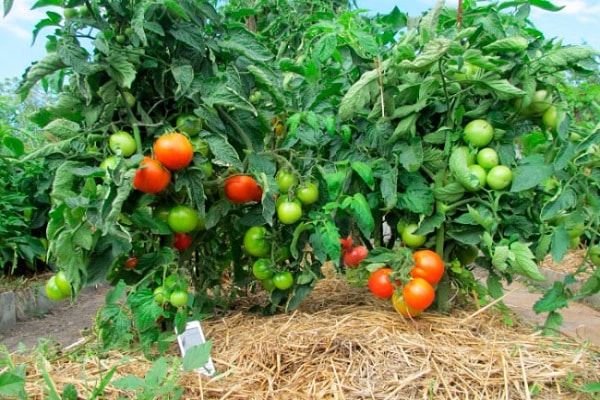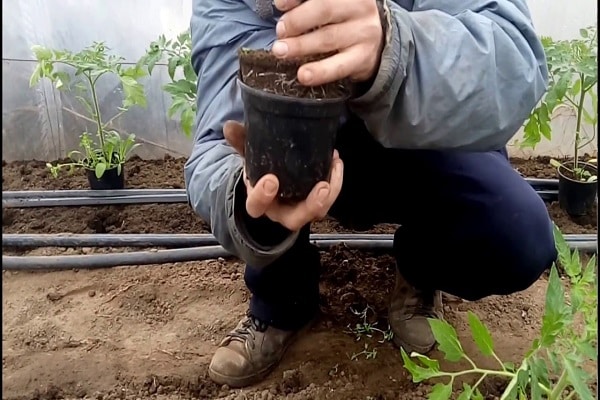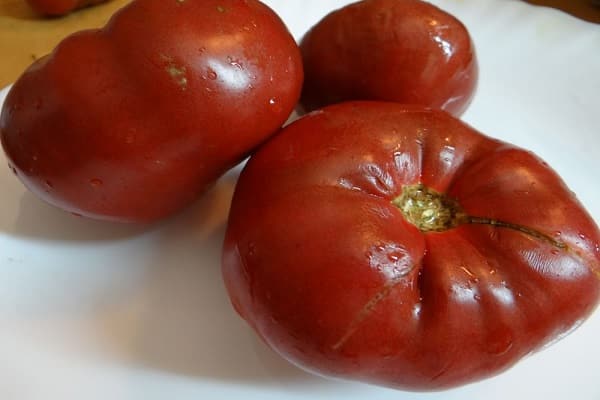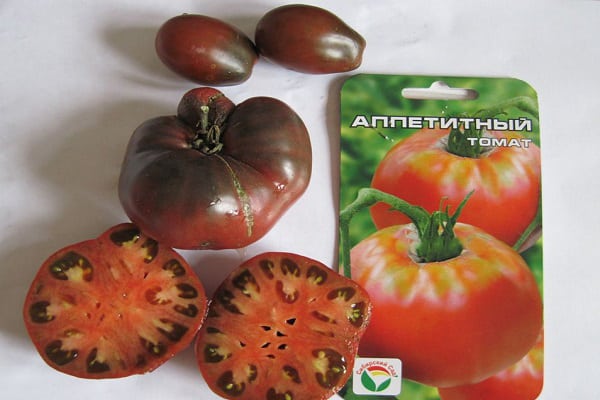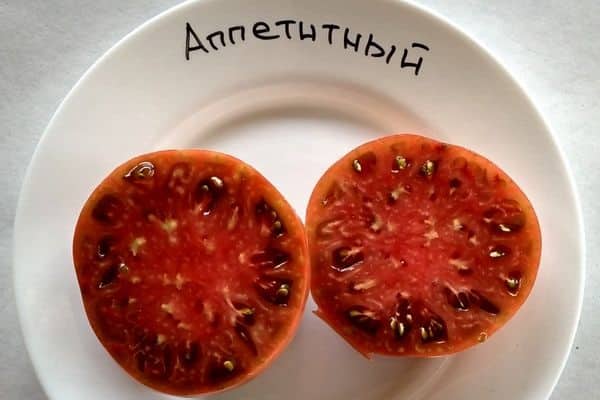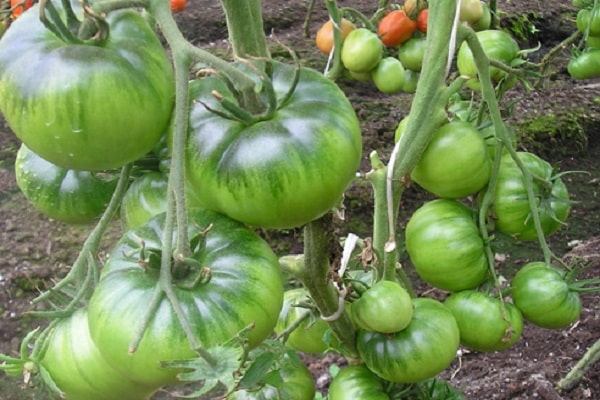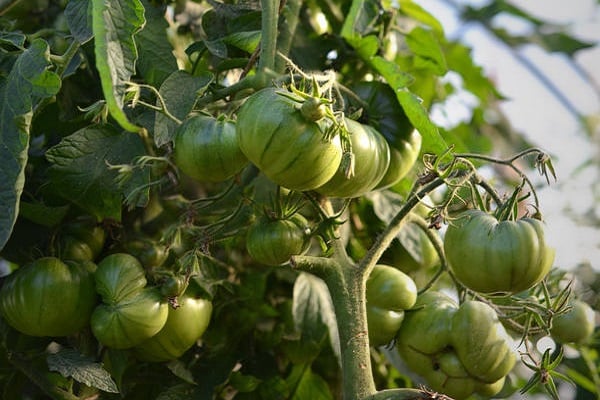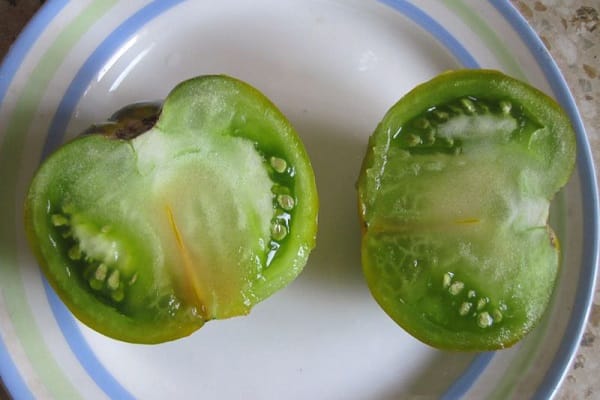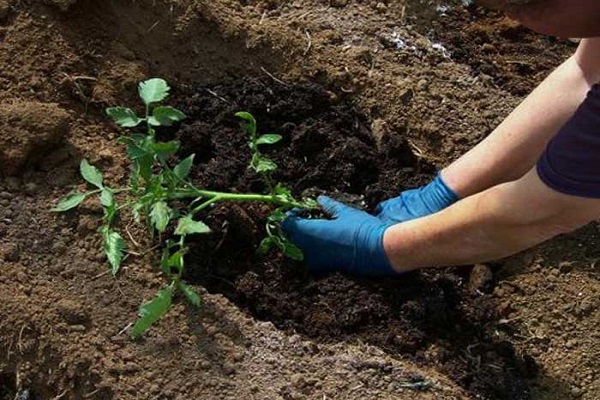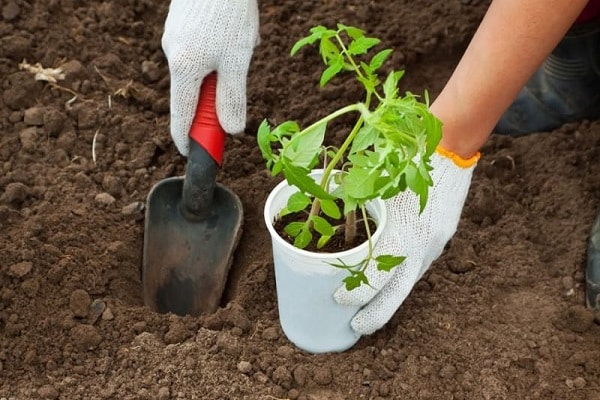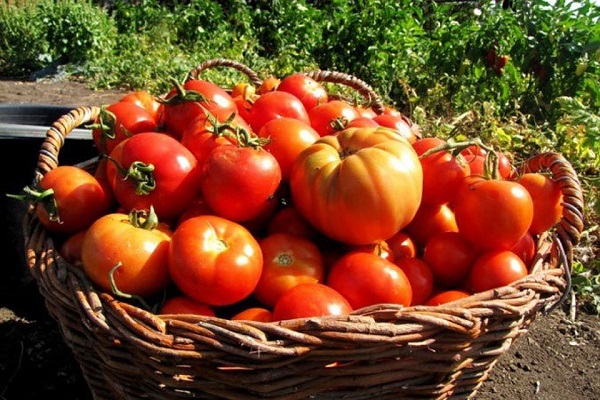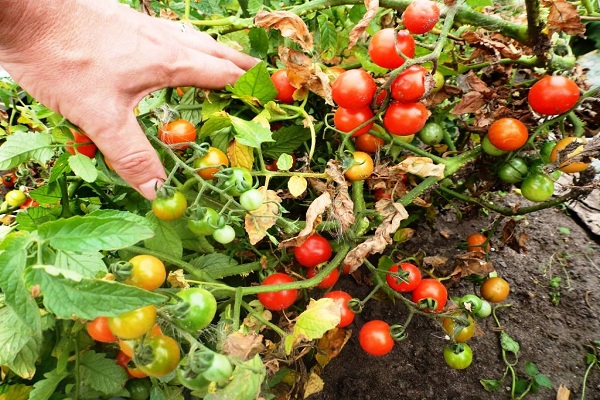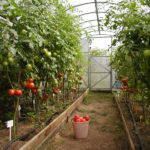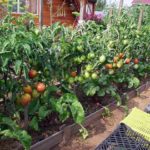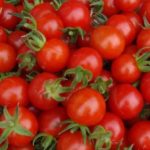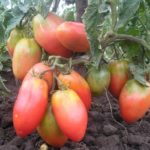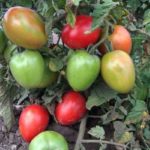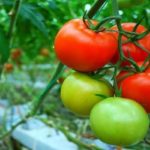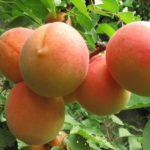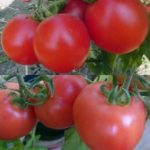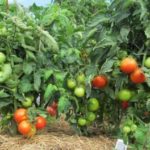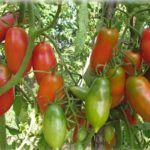Different regions have their own best varieties of tomatoes. Their list is determined by the correspondence of the characteristics to the climatic and geographical features of the area.
- Conditions for obtaining a decent harvest
- Climate features of the Vitebsk region
- What tomatoes to grow in open ground
- Tomato Volgograd early ripening 323
- Tomato Azhur F1
- Tomato Robinson F1
- Tomato Slivovka
- Rules for harvesting in open ground
- What to plant in greenhouses
- Tomato Appetizing
- Tomato Irish liqueur
- Rules for growing tomatoes in a greenhouse
- Brief conclusions
There are few areas favorable for farming. There tomatoes are grown in greenhouses and open ground without seedlings. In other regions, the gardener needs to carry out preparatory work.
The Vitebsk region is a zone of risky farming. Growing a heat-loving tomato is not easy for an ordinary summer resident. The choice of varieties and hybrids is the main condition for obtaining a good harvest.
Conditions for obtaining a decent harvest
Before going to the store to buy seeds, the gardener should remember the needs of his beloved pet. Tomato is a heat-loving and light-loving plant. Seeds begin to germinate at a temperature of 23-25 degrees Celsius. Conditions for proper plant development:
- optimal air humidity – 60%, soil – 70%;
- soil acidity – 6 pH;
- temperature – 25-28 degrees Celsius;
- daylight hours – 16-18 hours.
The tomato is capricious. Violation of climatic requirements causes buds to fall off and fruits to rot. You won't get a harvest. The following should be remembered:
- decreasing the temperature to 10 leads to the cessation of bush growth;
- at 15 degrees Celsius the ovaries fall off;
- pollen is sterilized in heat above 30 ⁰C.
The plant feels comfortable on fertile loamy and sandy loam soils. Too heavy and light soils should be structured.
Tomato plants require nitrogen and phosphorus at the beginning of growth. During flowering, the need for phosphorus and potassium increases.
Climate features of the Vitebsk region
The climate of the Vitebsk region is determined by Atlantic air masses. Return frosts are typical in spring. Summer is not too warm and humid. Comes at the end of May. It is not possible to grow tomatoes in open ground without seedlings.
The average temperature in June is 16 ⁰С, July – 18 ⁰С, August – 17 ⁰С. During the summer months there is an average of 84 mm of precipitation. Cloudy and foggy days are typical. The temperature regime determines the short growing season of the crops grown.
The soils of the region are soddy-podzolic, in places swampy, peaty, and floodplain.This is not the most fertile land for growing tomatoes. Their acidity is increased: 4.6-5 pH. For the comfortable existence of bushes, structuring is required.
The presence of an unheated greenhouse on a summer cottage solves the problem of a short summer. For planting in open ground, you should carefully select varieties and hybrids: early and mid-early ones are suitable.
What tomatoes to grow in open ground
Breeders have developed varieties and hybrids of accelerated ripening. Plants produce their harvest in one or two waves. This property allows you to “escape” late blight.
The gardener should pay attention to the use of fruits. Salad tomatoes are large. Their number on the bush is insignificant. Plants with a universal purpose are more productive. But they lag behind in taste: lower sugar content, rougher skin.
Tomato Volgograd early ripening 323
Agronomists of the Poisk company have created a new series: “Garden Abundance”. The variety represents a line of tomatoes. The plant is adapted to open ground. The fruits ripen 95-100 days after the loops appear. It is distinguished by the friendly ripening of berries. “Goes away” from late blight.
The bushes are low: they stretch up to 45 cm. They are distinguished by strong foliage. No shaping or garter required.
Fruit characteristics:
- spherical shape;
- smooth to the touch;
- slightly ribbed at the top;
- color bright red;
- thick skin;
- taste sweet and sour;
- berry weight up to 100 g;
- There are up to 5 fruits in a brush.
Gardeners give good reviews about the variety. The taste and speed of ripening are pleasing. People begin to feast on tomatoes as early as July 15th.
Tomato Azhur F1
SeDek breeders have developed a mid-early hybrid. The first fruits appear 110-115 days after germination.
Hybrid characteristics:
- determinate bush (reaches 0.9 m);
- the plant is powerful, with a thick stem;
- dark green leaves;
- internodes are short;
- the plant forms up to 5 clusters on the stem;
- each contains 5 fruits.
Those who planted it know: Openwork is resistant to TMV, verticillium, fusarium, and rot. With proper care it gives a yield of up to 10 kg/sq.m.
The fruits have the following properties:
- weighing up to 200 g;
- bright red color;
- dense pulp;
- sugar content;
- sweet taste;
- 6 chambers with small seeds;
- glossy dense skin.
Gardeners recommend the universal use of fruits. Fresh tomatoes are delicious, the skin does not crack. Juices, pastes, and ketchups have a sweet taste.
The keeping quality of tomatoes is pleasantly surprising. They are stored in the room for more than 35 days. Tomatoes are easy to transport to the place of sale or storage.
Tomato Robinson F1
Chelyabinsk agronomists have created the Robinson hybrid. It is perfect for growing in open ground in the Vitebsk region.
Distinctive features of the plant:
- determinate hybrid (less than 1.2 m);
- early ripening period (from loops to first fruits - 90 days);
- the leaves resemble those of a close relative, the potato;
- requires the formation of a bush and garter to a support.
In the Urals, gardeners appreciated Robinson. In 2017, the hybrid became the most purchased product.
In a short summer with changeable weather, Robinson produces a stable harvest. The fruits ripen together. After harvesting, the beds are cleared and late blight is not observed.
Tomatoes delight with the following characteristics:
- bright crimson color;
- sweet taste;
- weighing up to 300 g;
- slightly flattened round shape;
- weak ribbing at the stalk;
- juicy pulp;
- easy separation from the stalk;
- dense, rough skin.
Gardeners celebrate the friendly yield of the harvest. Large fruits are eaten whole, small ones are rolled into jars, salted, and pickled.The raspberry color and sweet taste distinguish canned food.
Tomato Slivovka
Another variety with early ripening. Gives a harvest in open ground in any weather. Characteristics of Slivovka:
- determinate bush (0.4 m);
- You can enjoy the fruits 100 days after germination;
- yield 8 kg/sq m (with proper agricultural technology);
- friendly ripening of tomatoes;
- does not require shaping, pinching, or gartering;
- does not suffer from blossom end rot or septoria;
- sets fruit in any weather.
Gardeners like strong, stocky seedlings. Young bushes do not stretch.
What delights the fruits of Slivovka:
- plum shape with a sharp “spout”;
- dense fleshy pulp;
- weighing up to 120 g;
- sour taste;
- resistance to cracking.
Gardeners like the transportability of Slivovka. Berries look original in assorted vegetables. The skin is not damaged, the pulp does not spread.
Rules for harvesting in open ground
Proper selection of seeds is the first step towards obtaining a decent harvest. It is important to properly prepare the seedlings and skillfully care for the plants.
To obtain good fruits, planting rules must be followed. Healthy seedlings will produce juicy, aromatic tomatoes. Their taste will fully correspond to that declared by the seed manufacturer.
Sequencing:
- It is possible to grow tomatoes in open ground only through seedlings. It should be sown 2 months before the intended planting on the ridges.
- In the Vitebsk region, the heat-loving tomato will ripen only if the sowing time is observed. Plants are planted in open ground at the age of 50 days. By this time, 5-6 true leaves had grown on the bush.
- You need to start hardening off the bushes within 2 weeks. This simple measure will prevent growth from stalling due to adaptation.
- The ridges should be filled with mature organic matter in the fall.When planting, add 2 tablespoons of double superphosphate to each plant.
- Be sure to cover with white lutrasil. This will prevent sunburn of the leaves and stunting of development.
- The ground needs to be mulched with rotted hay, sawdust, and 2-3 year old compost.
- Tomatoes should be watered in the morning. Water should not get on the leaves and stems.
- Cover the ridges with lutrasil at night. This will keep you warm and protect from cold dew.
- Early ripening tomatoes are responsive to fertilizing with a complete mineral complex (nitrogen, potassium, phosphorus). Application must be made according to the manufacturer's instructions.
- If necessary, carry out preventive treatments with copper-containing preparations or folk remedies for late blight.
The harvest should be harvested before the onset of cold weather. Green berries ripen in a dark, warm place.
What to plant in greenhouses
A competent gardener knows: the best varieties of tomatoes are those that are suitable for growing in a given area under certain climatic conditions.
Greenhouse owners can be envied: the choice of tomatoes is becoming wider. You can plant plants of medium and late maturity. Indeterminate tomatoes are easier to process. The harvest is more abundant.
Tomato Appetizing
The variety pleases with a good amount of fruits. Grows in open ground and unheated greenhouses.
Peculiarities:
- average ripening period (115 days from germination to the first berry);
- limits itself in growth (in a greenhouse it stretches up to 1 m 70 cm);
- overloaded with fruits (requires garter);
- pinching is recommended (the bush increases its green mass).
If the growing rules are followed, the gardener will receive 8 kg/sq. m of juicy berries. Tomatoes differ in the following:
- weighing up to 450 g;
- wine red;
- sugary juicy pulp;
- sweet taste.
The manufacturer indicated the salad purpose of the tomatoes. Gardeners note: sauces, pastes, and ketchups have a bright color and original consistency.
The plant is unpretentious. Traditional care is required.
Tomato Irish liqueur
An original variety with green fruits for indoor soil. Taste combined with color gives gardeners an unexpected sensation.
Description of the plant:
- indeterminate tomato (up to 1 m 50 cm);
- mid-early ripening period (120 days from loops to berries);
- not prone to overgrowing with foliage;
- first ovaries after 8 leaves;
- 5 berries in a bunch;
- overloads himself with fruits (requires garter);
- yield 4 kg/sq. m.
The variety is sensitive to air humidity. High levels cause the ovaries to fall off, while low levels cause pollen sterilization.
Irish liqueur fruits have the following characteristics:
- weight up to 250 g;
- original color (green with fuzzy yellow stripes);
- spherical, slightly flattened shape;
- 6 seed chambers;
- sweet and sour taste.
Gardeners appreciated the opportunity to collect their own seeds of the variety. Subsequent generations are adapted to local soil and climatic conditions.
Rules for growing tomatoes in a greenhouse
The conditions for obtaining a harvest in a greenhouse are slightly different from the requirements for growing tomatoes in open ground. A number of conditions must be met:
- planting dates (may be a little late);
- temperature and humidity conditions;
- providing the required illumination.
The greenhouse must be regularly ventilated: tomatoes are not afraid of drafts. The soil and air should not be allowed to overheat: the pollen of the flowers is sterilized. Can't wait for the harvest.
It is optimal to organize drip watering of plants. This will reduce humidity and reduce water consumption.
Brief conclusions
Gardeners on forums talk about tomato varieties for the Vitebsk region. Their experience proves that it is possible to grow tomatoes in problem regions. The main thing is to choose the varieties correctly and comply with the requirements of agricultural technology.
Planting plants in open ground is risky. But it is possible to get a decent harvest.
Greenhouse owners are in an advantageous position. They have a wider choice.
Violation of the rules for preparing seedlings and planting in a permanent place will lead to loss of harvest.

